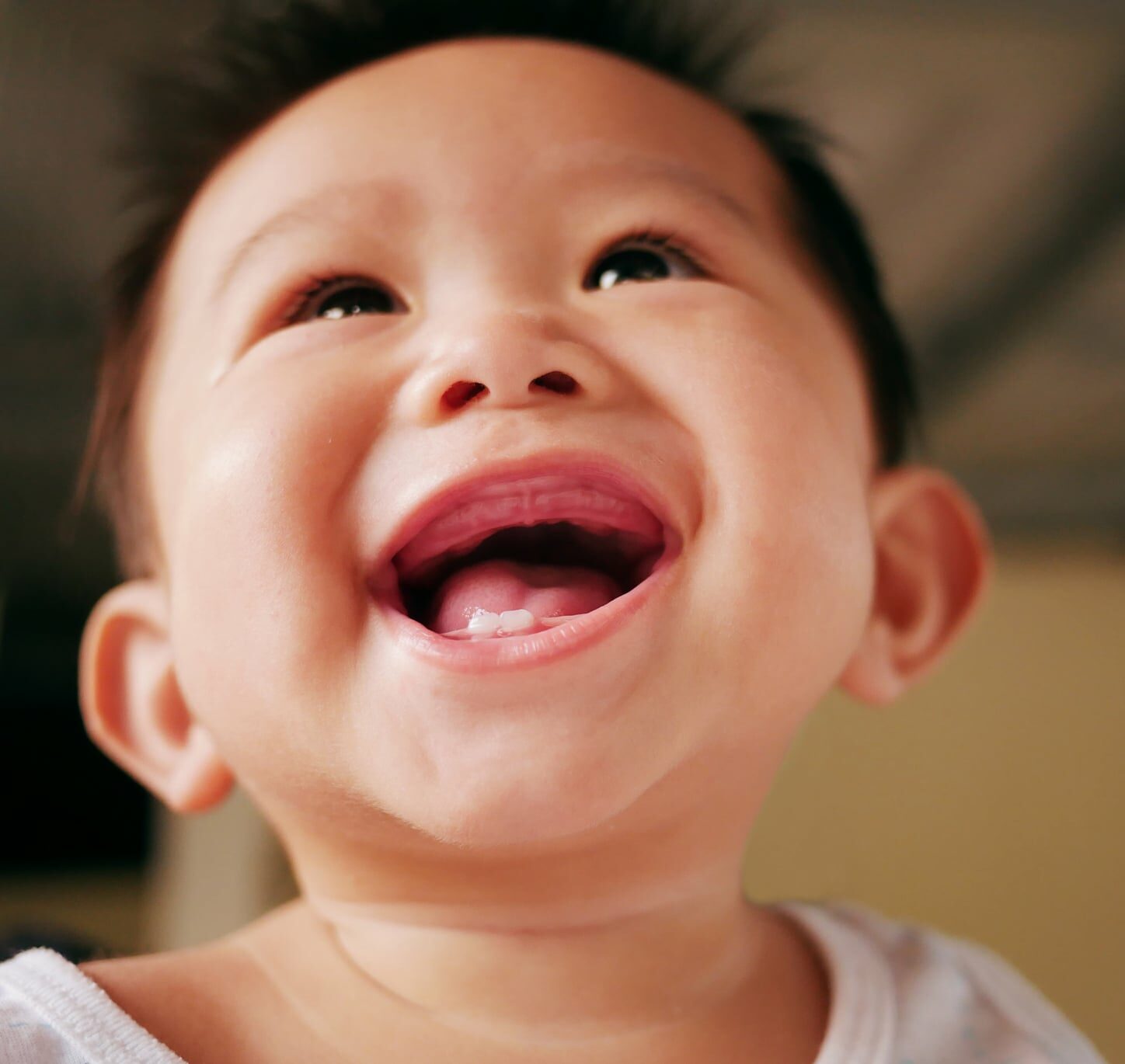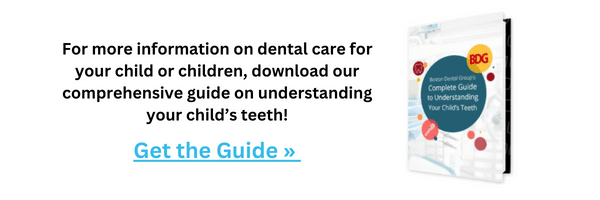As a parent, your baby’s oral health is a top priority, and the first year is an important time for establishing good dental habits and preventing dental issues. From teething to the emergence of first-year molars, here are some dental tips for your baby’s first year.
Dental Tips for Your Baby’s First Year
Avoiding Baby Bottle Tooth Decay

Even before your child’s first teeth come in, bacteria are already on the scene, feeding on the sugars from the milk they ingest. These bacteria can damage your child’s teeth early on, a condition known as “baby bottle tooth decay.” Though your child doesn’t yet have teeth to brush, the health of their gums are important, too. Wipe your baby’s gums with a soft, clean towel to help remove some of this bacteria.
One Year Teething Tips
Around the age of three to six months, your baby’s first teeth will begin to emerge, a process known as teething. By their first birthday, most babies will have several teeth, typically the front bottom and top teeth. Teething can be a challenging time for both babies and parents, as it may cause discomfort and irritability. To help lessen your baby’s teething symptoms, consider using teething toys, chilled (not frozen) teething rings, or gently massaging their gums with a clean finger.
Start Brushing Early
While tooth decay may not seem like a concern when your baby only has a few teeth, it’s essential to establish good oral hygiene habits early on to prevent future dental problems. Once teeth start to appear, use a soft-bristled baby toothbrush and a tiny bit of toothpaste to brush your baby’s teeth twice a day. Both fluoridated or non-fluoridated toothpastes are safe to use, though you should only use a small amount, about the size of a grain of rice. Not only will this help protect your baby’s first teeth, but it will also help to establish good dental hygiene habits.
First Year Molars
Around the age of one, your baby may start to experience the eruption of their first molars, which are located towards the back of the mouth. These molars play a crucial role in chewing and grinding food, so it’s particularly important to use good oral hygiene practices to keep them healthy. Continue brushing your baby’s teeth twice a day, paying close attention to the newly emerged molars.
One Year Old Molars Pain Relief
The eruption of first-year molars can sometimes cause discomfort and pain for your baby. To help relieve their discomfort, you can try giving them a cold teething ring or washcloth to chew on, or offer them chilled (not frozen) fruit or vegetables to gnaw on. If your baby is experiencing severe pain or if you have any concerns, consult with your pediatric dentist for additional guidance and recommendations.
Avoiding Oral Thrush
Oral thrush, a fungal infection caused by Candida yeast, can occur in babies during their first year, particularly if they have been treated with antibiotics or if they use pacifiers or bottles frequently. Symptoms of oral thrush may include white patches on the tongue, inner cheeks, or roof of the mouth, as well as fussiness or difficulty feeding. This condition is common in babies, but it’s also avoidable. If you suspect your baby has oral thrush, consult with their pediatrician or dentist for proper diagnosis and treatment, which may include antifungal medication.
 Conclusion
Conclusion
Your baby’s first year is an exciting and crucial time for their dental development. By implementing good oral hygiene habits, monitoring their teething progress, and being aware of potential issues such as tooth decay and oral thrush, you can help ensure your baby’s oral health remains on track. Remember to schedule their first dental visit by their first birthday or within six months of their first tooth eruption, and continue to prioritize their oral health as they grow. With proper care and attention, you can set the foundation for a lifetime of healthy smiles for your little one.[/vc_column_text][/vc_column][/vc_row]


